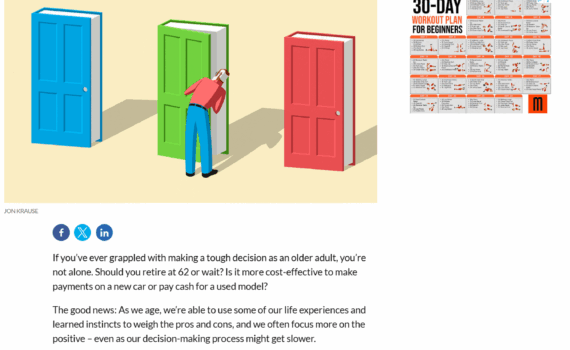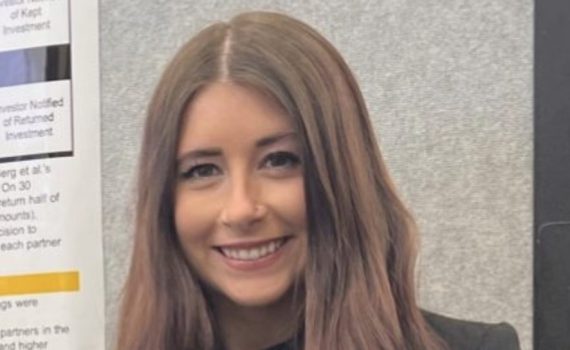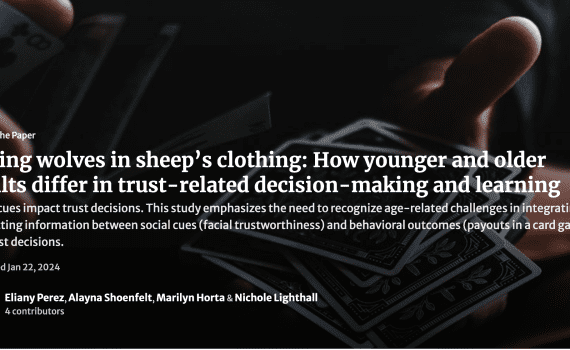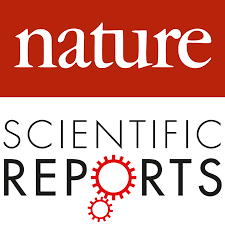Dr. Nichole Lighthall, interviewed by AARP, shared insights into how aging affects decision-making—and how older adults can use their life experience to their advantage. While cognitive processing may slow with age, older adults often draw on accumulated wisdom and emotional insight to make meaningful, values-driven choices. Lighthall emphasizes taking time […]
Yearly Archives: 2024
ADDL PhD student Margaret Doheny was awarded the Richard Tucker Gerontology research grant from LIFE@UCF. Her project, entitled: The Effects of Digitally-mediated Communication on Social Decisions across Adulthood, investigates how social decisions differ through remote communication. The study will compare results from a group of older adults to a group […]
Congratulations to Dr. Lighthall, on her selection for a 2024 Research Incentive Award (RIA) by UCF Faculty Excellence! The Research Incentive award recognizes outstanding research, scholarly, or creative activity that advances the body of knowledge in a particular field, including interdisciplinary research and collaborations. Faculty awards further acknowledge employee contributions […]
Read the Springer Nature “Behind the Paper” story on our recent paper in Scientific Reports. The blog post entitled, “Facing wolves in sheep’s clothing: How younger and older adults differ in trust-related decision-making and learning” can be found here.
This month, the University of Southern California Davis School of Gerontology Alumni Stories series highlights Dr. Lighthall’s work on vulnerability to deception and fraud in aging. In the story, Dr. Lighthall also describes the value of a multi-disciplinary gerontology education for addressing complex scientific questions and societal problems that relate […]
A new collaborative paper in Scientific Reports by Ebner Lab (UF) and Lighthall Lab members describes age differences in trust-related decision making and learning. Using a novel adaptation of the Iowa Gambling Task (IGT), facial cues of trustworthiness were paired with IGT card decks such that they were either congruent […]





